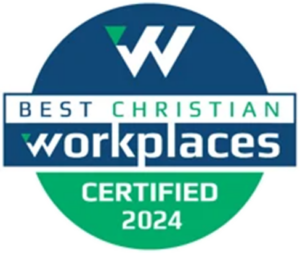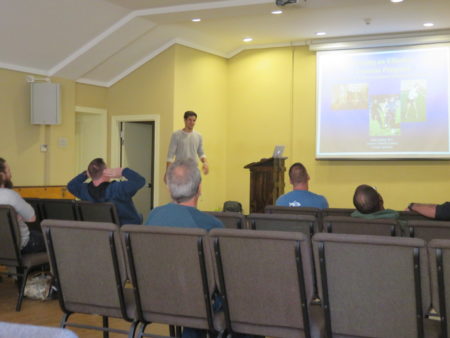
Furman University student Gabe Silveira teaches healthy eating and lifestyle choices to men in recovery at the Overcomers Center.
“Is skipping breakfast better than eating a bad breakfast?” The first question came from the back of the Overcomer Center chapel while other men were filing in. Gabe Silveira, an intern with Furman University’s FUEL program, took it in stride. “That’s a good question. Let me think a minute.” Four other men slipped into their seats. “Of course, you want to make the healthiest choices you can, but your body needs fuel, so eating a little something bad is better than skipping breakfast entirely.”
The morning class continued with questions on the benefits of exercise. The men in the Level One recovery group were fully engaged. They had come to learn how taking care of their physical bodies would aid them in their quest to beat their addictions. The need for a good diet, plenty of exercise and enough sleep would be a few of the new tools they could use.
They learned the three aspects of exercise—resistance (weights), aerobic, and flexibility (stretching)—to retain as much muscle mass as possible. “You mean I’m losing muscle right now, just sitting here?” asked one Overcomer. Silveira gave practical tips on how to gauge aerobic activity. “You want to walk or run fast enough to be able to talk but not to sing. If you can sing, speed it up. If you can’t talk, slow down a bit.”
Knowledge Supports Recovery
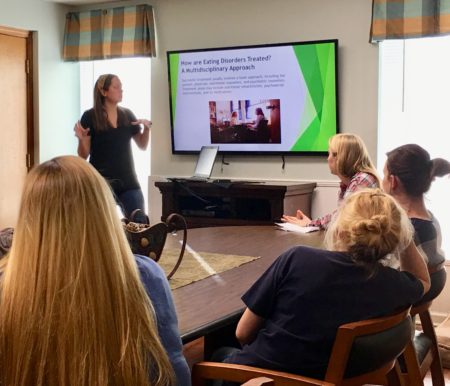
Furman University FUEL intern Becca Bosch teaches women at the Renewal recovery center about the dangers of eating disorders.
Becca Bosch and Helen Hardy, fellow FUEL interns, are taking the same message to the women they walk with each week at Shepherd’s Gate, Miracle Hill’s shelter for women and children. In addition to classes on the FUEL plate–half vegetables and fruit, one quarter whole grains and one quarter lean protein– the two spend time getting to know the women. “The walking groups make it relational,” said Hardy. “Knowing someone cares enough to keep coming week after week makes a big difference. Being able to achieve tangible aspects of their goal when they leave is inspiring,” added Bosch.
FUEL Developer Kelly Frazier and the Furman interns work at several of Miracle Hill’s nine shelters to both educate guests and coordinate exercise among them. Frazier, a Health Sciences Lecturer at Furman University, carried her pioneering work of FUEL to the adult ministries two years ago. “Many found they packed on 25 to 75 pounds as they worked their way to recovery,” she said. “We want to help them make choices to make their lives healthier.”
FUEL Change
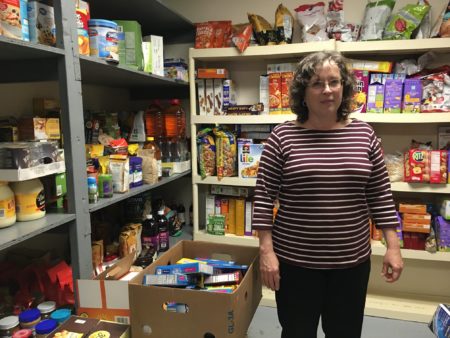
Shepherd’s Gate Kitchen Manager Carrie Seils works to ensure healthy choices are available in the shelter’s pantry.
Carrie Seils, Kitchen Manager at Shepherd’s Gate, is now working with kitchen managers across the ministry to make food decisions easier and more nutritious. In the beginning, the FUEL plate was tough to accomplish. Fresh produce was rare and lean proteins were limited. Working with Miracle Hill’s warehouse, Loaves and Fishes, Costco, and produce suppliers, Frazier was able to dramatically increase the amounts of fruits and vegetables. Interns, such as Sun Lee, Meg Lee, and José Morales, spent time in the Miracle Hill kitchens and warehouse to educate the kitchen staff in ways to make meals more nutrient-rich and less carb-filled.
Whole wheat breads have been moved to the front of the shelves while white bread and croissants have been pushed to the rear. Fruits and vegetables share top billing instead of cakes and pies. Recipes, using lean protein and whole grain ingredients, replace old standards such as spaghetti and meatballs.
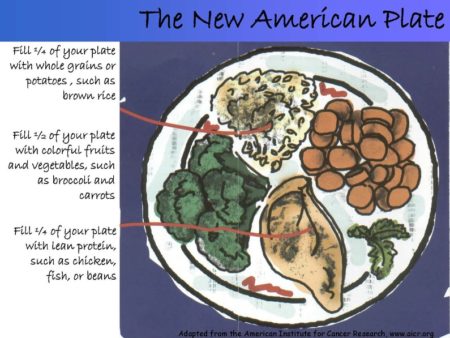
Lee began organizing the Overcomer Center’s pantry and freezer. “When they can find healthy alternatives easier, the cooks will use them more,” he said. Not only did Lee redo the shelves, he suggested ways to encourage healthier eating in the dining room. Gone are the sugar-laden self-serve pies. In are a few cookies. Sugar intake (and accompanying pounds) are down. Since the food is served already plated, correct proportions of food are now the norm, not the exception.
“Small changes make a big impact,” said Seils. “The perspective of having a different life is almost unimaginable.We are grateful for such dedicated volunteers who give our guests additional hope for healthy and drug-free lives.”
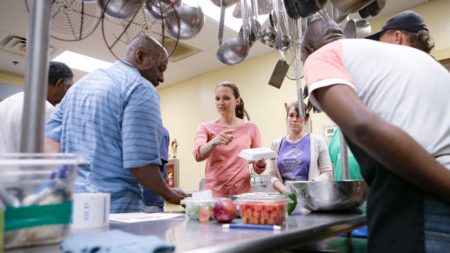
Kelly Frazier (center) teaches staff and guests at the Greenville Rescue Mission about the FUEL plate.
If you would like to learn more about Furman Univeristy’s FUEL program and their work with Miracle Hill, contact Kelly Frazier at Kelly.Frazier@Furman.edu
[embedyt] https://www.youtube.com/watch?v=i7bXngi0DBg[/embedyt]

